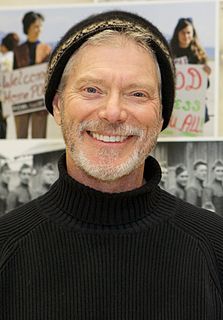A Quote by Sheryl Sandberg
Related Quotes
The traditional metaphor for careers is a ladder, but I no longer think that metaphor holds. It just doesn’t make sense in a less hierarchical world... Build your skills, not your resume. Evaluate what you can do, not the title they’re going to give you. Do real work. Take a sales quota, a line role, an ops job. Don’t plan too much, and don’t expect a direct climb. If I had mapped out my career when I was sitting where you are, I would have missed my career.
Business requires an unbelievable level of resilience inside you, the chokehold on the growth of your business is always the leader, it's always your psychology and your skills - 80% psychology, 20% skills. If you don't have the marketing skills, if you don't have the financial-intelligence skills, if you don't have the recruiting skills, it's really hard for you to lead somebody else if you don't have fundamentally those skills. And so my life is about teaching those skills and helping people change the psychology so that they live out of what's possible, instead of out of their fear.
Your skills may not be anything out of the ordinary, but you can do miraculous things with what you've got. Maybe it's your parenting skills, or your compassion. It may be your curiosity, your imagination or unique style of fashion. Even if it seems to be no big deal, the lesson here is we all have unique abilities and talents.
I'm often asked, Which is more important--attitude or skill? The answer is that it's somewhat like asking which leg of a three-legged stool is most important. It is my complete conviction, based on a considerable amount of research, that if you have the right attitude, combined with the right skills, and build your attitude and your skills on a solid character base, you can enjoy long-lasting success.
Emphasize your strengths on your resume, in your cover letters and in your interviews. It may sound obvious, but you'd be surprised how many people simply list everything they've ever done.
Convey your passion and link your strengths to measurable results. Employers and interviewers love concrete data.
Emphasize your strengths on your resume, in your cover letters and in your interviews. It may sound obvious, but you'd be surprised how many people simply list everything they've ever done. Convey your passion and link your strengths to measurable results. Employers and interviewers love concrete data.
Living with the exhortation "Be in the World But Not of It," stimulates the best of your analytical skills, deepens your intuition, eliminates destructive competition, develops your skills and creativity serially and painlessly, and develops concentration, efficiency, accuracy, and humor. And that's what a creative life is all about: making it a work of art.
































